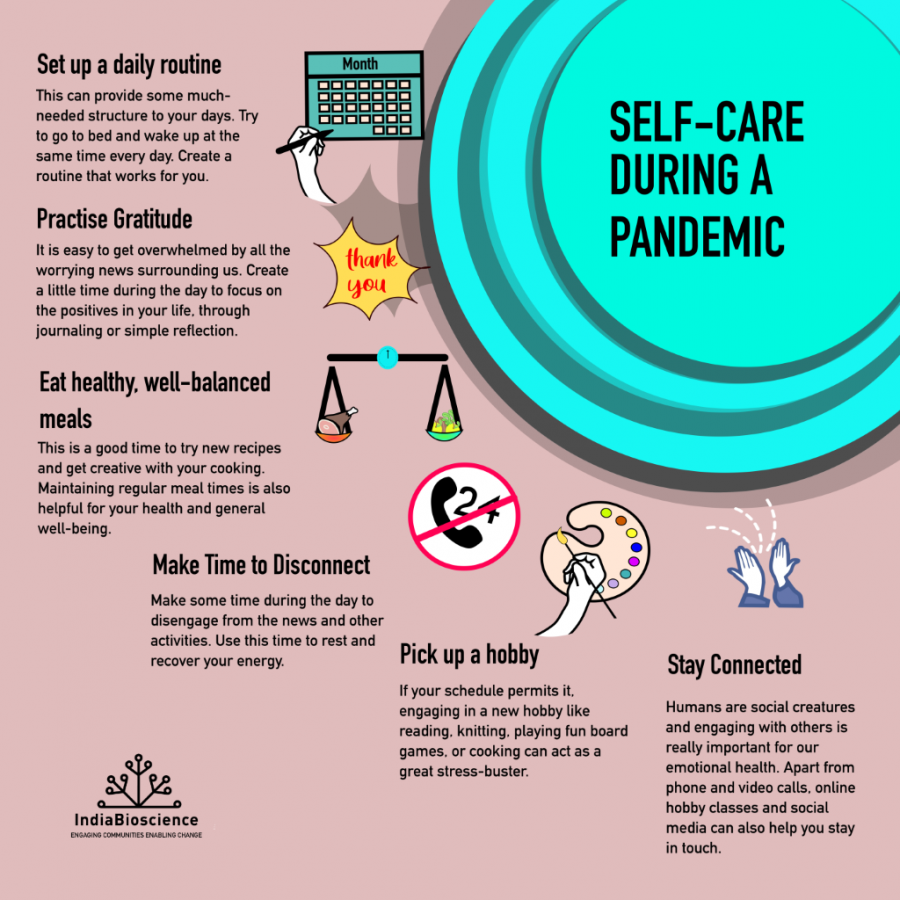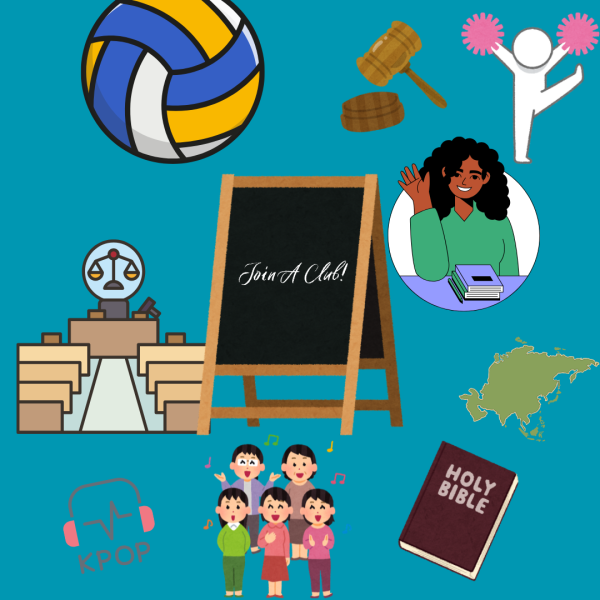Are You Practicing Self-Care?
Self-care describes a conscious act one takes in order to promote their own physical, mental and emotional health, according to verywellmind.com. Practicing self-care should be important for all of us, including our teachers and students, especially at such devastating times like these. Most teachers get their motivation and energy from the presence and feedback from their students. Mr. Raman, director of the music program for West High, says the biggest concern he struggles with during distance learning is “not getting that instant feedback.”
One of the things teachers make sure of is their students’ well-being, so not being able to identify whether or not their students are struggling is a teacher’s main worry. Worrying then leads to stress and anxiety, which yes, teachers also feel. Teachers cannot take care of their students if they cannot take care of themselves first. When teachers are able to maintain their own health and mental stability, they create a more energized and refreshing environment for their students.
As for the students, they worry about their future, self-esteem, academic pressures to meet or exceed perfection and being over-scheduled with demands to “do it all.” Senior, Nataly Tafoya, said, “As a senior, you’re expected to do all these applications, plan for the future and other fun senior activities to give you different experiences, but right now I just feel stuck and motionless, like you are living the same day every day.”
Everybody, from teachers to students, feel as though they have lost that motivation for not just school, but within themselves. With everything happening with this pandemic, people are struggling to balance basic self-care necessities. There are many things you can do to engage in self-care. Here are the foundations:
Physical Self-Care. Getting enough sleep should be number one in this topic. Easier said than done, but sleep deprivation is harmful to a person’s physical and emotional state. Most young people need eight to ten hours of restful sleep to function at their best, while adults need about seven to nine hours. Second, is food because there are those who are eating to their heart’s content, and those who are so stressed that they forget to eat. Make sure to eat three well-balanced meals every day. Third, is exercise; not only does it get you physically fit, but it is a natural way to help decrease depression and anxiety. Being immobile all morning to noon from distance learning can cause many physical stresses. Experts recommend moving and walking around for at least 30 minutes a day to maintain a healthy cardiovascular system. When your heart and lung health improve, you have more energy to tackle daily tasks.
Social Self-Care. Some ingredients to social self-care can be employing gratitude to your life in order to strengthen relationships with family and friends. According to infocounseling.com, research has found that meeting with peers, in this case virtually, and talking about what’s going on with you—including past events you’re still processing—prevents burnout and promotes well-being. Group connections are also important for encouraging resilience and releasing chemicals in the brain that support well-being.
Occupational Self-Care. Your attitude about the work you do is a critical component of overall self-care. If you are unhappy with the work you are doing, that will carry into all other aspects of your life. Working takes up a majority of your time during the week, so doing work that you find motivating and interesting is important to your well-being. Having a work/life balance is important to keep that passion of yours fresh.
Intellectual Self-Care. When was the last time you learned something that wasn’t for work? Last time you read a book for fun? Last time you baked? Last time you played an instrument without sheet music? These small activities allow you to develop personal resources that work together with the other realms of wellness in order to achieve a more balanced life. Mr. Raman has stated he has struggled with balancing his work and things he feels very passionate about. He says what helps him find that balance is to “just play, find that joy you have been missing, love what you do.” In other words, don’t give yourself a specific goal in mind when doing that thing you love and just let yourself go.
Emotional Self-Care. Emotional self-care allows you to acknowledge and accept how you are feeling. Once you accept your feelings, you can begin to understand why you are feeling that way and decide how you would like to act in response to those feelings. Being emotionally well grants you the power to express feelings without any constraints. According to mindbodygreen.com, emotional self-care overlaps with all other forms of self-care: physical, social, spiritual, etc. The more you practice each type, the stronger every other type can become.
Now, these are only five basic and fundamental foundations that are needed to practice self-care. There is also financial and spiritual self-care. Those ones are much more personal but do take them into consideration. Teachers check on your students; students, check on your teachers. Give yourself a break. Perhaps, binge-watch that compelling tv show you’ve been wanting to get to, take a nap, cook that Gordan Ramsey recipe, play that instrument, finish that level in that video game that’s been collecting dust, call an old friend, get off the news, do a Chloe Ting workout video or fight those inner demons. Take care of yourselves and know that are not alone during these times. So, before you start the new week, month, and year, ask yourself these very important questions:
- How often during the last X months have I felt my moods or my life shift; were they under my control?
- How ‘supported’ do I feel by others around me– my friends, family or otherwise?
- Have my sleep habits changed? Do I wake up and fall asleep at regular times? Quality of rest?
- How frequently have I been doing things that mean something to me in my life?
- Do I find pleasure in things that usually make me happy?
- How do I feel most of the time? Happy? Anxious? Satisfied? Sad? Confused?
- If I had time, what would I do?






